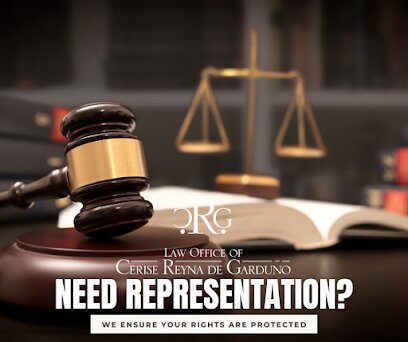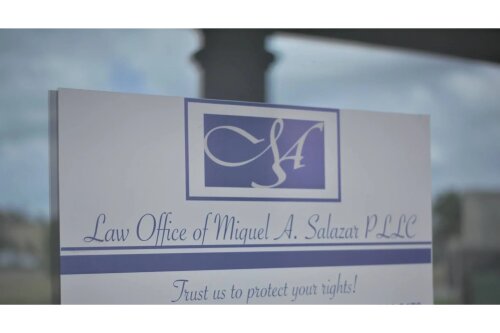Best Defamation Lawyers in Indiana
Share your needs with us, get contacted by law firms.
Free. Takes 2 min.
Or refine your search by selecting a city:
List of the best lawyers in Indiana, United States
About Defamation Law in Indiana, United States
Defamation law in Indiana provides legal remedies to individuals or entities who have suffered harm to their reputation due to false statements made by others. Defamation encompasses both libel (written defamation) and slander (spoken defamation). These laws are designed to protect people from false statements that injure their good name or social standing. However, the law also balances this protection with the right to free speech, making certain defenses available to those accused of defamation, such as truth or privilege.
Why You May Need a Lawyer
Defamation cases can be complex, especially when navigating the requirements for proving harm, fault, and falsity. You may need a lawyer in situations such as:
- You have been accused of making defamatory statements and need to defend yourself.
- Someone has made false statements about you or your business, resulting in damage to your reputation or livelihood.
- You are involved in a media-related dispute, such as issues with newspapers, blogs, or social media posts.
- You need help understanding whether a statement qualifies as defamation under Indiana law.
- You have suffered personal or professional losses due to damaging allegations and wish to seek compensation.
- You are a business facing online reviews or comments that you believe are false and harmful.
Local Laws Overview
Indiana defamation law aligns with general U.S. principles but has its own specific characteristics that you should be aware of:
- Elements of Defamation: In Indiana, a plaintiff must prove that a defamatory statement was made, the statement was published to a third party, the statement caused harm, and it was made with at least negligence regarding its falsity.
- Statute of Limitations: Lawsuits for defamation must be filed within two years from the date the alleged defamatory statement was made.
- Public Figures vs. Private Individuals: Public figures in Indiana must show actual malice (knowledge of falsity or reckless disregard for the truth) while private individuals generally only need to prove negligence.
- Defenses: Truth is an absolute defense to defamation. Other defenses may include privilege (such as statements made during judicial proceedings), opinion, or fair comment on matters of public interest.
- Damages: Plaintiffs can seek compensatory damages for actual harm and, in certain cases, punitive damages if there was actual malice.
- Special Rules for Media: Indiana provides a degree of protection for media organizations, requiring plaintiffs to prove actual malice in cases involving public concern.
Frequently Asked Questions
What is the difference between libel and slander in Indiana?
Libel refers to written or published defamatory statements, while slander involves spoken defamatory remarks. Both are forms of defamation but may differ with respect to evidence and damages.
Is truth a complete defense against defamation in Indiana?
Yes, if the statement made is true, it generally cannot be the basis for a defamation claim, regardless of how damaging it may be to the plaintiff’s reputation.
How long do I have to file a defamation lawsuit in Indiana?
You have two years from the date the alleged defamatory statement was made to file a lawsuit under Indiana law.
What must I prove to win a defamation case in Indiana?
You must prove that a false and defamatory statement was made, it was communicated to someone else, it caused you harm, and the defendant was at least negligent in making the statement.
Are opinions protected under Indiana defamation law?
Yes, statements of pure opinion are generally not considered defamation under Indiana law, as they cannot be proven true or false.
Can I sue for defamation if the statement was made about my business?
Yes, businesses and organizations can pursue defamation claims if false statements harm their reputation or result in financial loss.
Do public figures and private individuals have different standards in Indiana defamation cases?
Yes, public figures must prove that the false statement was made with actual malice, while private individuals typically need to show only that the defendant was negligent.
What are some defenses to defamation claims in Indiana?
Common defenses include truth, privilege (such as statements made during official proceedings), fair comment, and lack of actual malice.
What kind of damages can be recovered in a defamation lawsuit?
Damages may include compensation for actual harm to reputation, emotional distress, financial loss, and punitive damages in cases of malicious intent.
Can a defamatory statement made online be considered under Indiana law?
Yes, online publications, social media posts, and internet reviews can all be grounds for defamation claims if they meet the required legal elements.
Additional Resources
If you are seeking more information or assistance, the following resources may be helpful:
- Indiana Judicial Branch - Offers information about Indiana laws and courts.
- Indiana State Bar Association - Provides lawyer referrals and legal information.
- Local county clerk offices - For court procedures and records relevant to defamation cases.
- Legal Aid organizations in Indiana - Many offer free or low-cost legal advice for those who qualify.
- Indiana University Maurer School of Law and other law schools - Some host legal clinics that may assist individuals with civil cases.
Next Steps
If you believe you are the victim of, or have been accused of, defamation in Indiana, consider taking the following steps:
- Gather evidence including copies or recordings of the allegedly defamatory statement, names of witnesses, and documentation of any harm suffered.
- Write down a detailed timeline of events related to the defamation incident.
- Consider consulting with an attorney experienced in Indiana defamation law for an evaluation of your case and to understand your rights and options.
- If you cannot afford an attorney, reach out to local legal aid organizations or the Indiana State Bar Association for help finding low-cost or pro bono legal assistance.
- Act quickly, as Indiana law has a two-year deadline for filing defamation claims.
- Do not communicate directly with the opposing party about the dispute without legal advice, as anything you say could be used in court.
An attorney can help assess your case, draft legal documents, and represent your interests in negotiations or court proceedings. Taking timely, informed action is crucial to protecting your reputation and legal rights.
Lawzana helps you find the best lawyers and law firms in Indiana through a curated and pre-screened list of qualified legal professionals. Our platform offers rankings and detailed profiles of attorneys and law firms, allowing you to compare based on practice areas, including Defamation, experience, and client feedback.
Each profile includes a description of the firm's areas of practice, client reviews, team members and partners, year of establishment, spoken languages, office locations, contact information, social media presence, and any published articles or resources. Most firms on our platform speak English and are experienced in both local and international legal matters.
Get a quote from top-rated law firms in Indiana, United States — quickly, securely, and without unnecessary hassle.
Disclaimer:
The information provided on this page is for general informational purposes only and does not constitute legal advice. While we strive to ensure the accuracy and relevance of the content, legal information may change over time, and interpretations of the law can vary. You should always consult with a qualified legal professional for advice specific to your situation.
We disclaim all liability for actions taken or not taken based on the content of this page. If you believe any information is incorrect or outdated, please contact us, and we will review and update it where appropriate.
Browse defamation law firms by city in Indiana
Refine your search by selecting a city.











